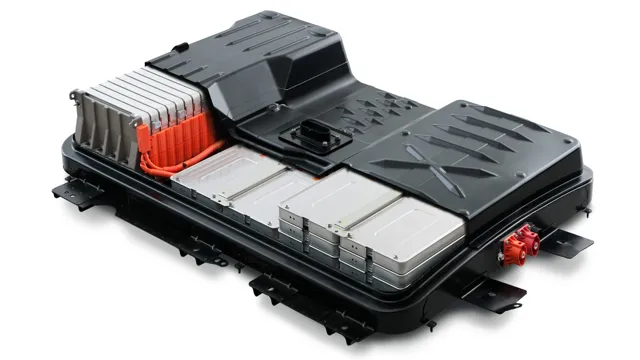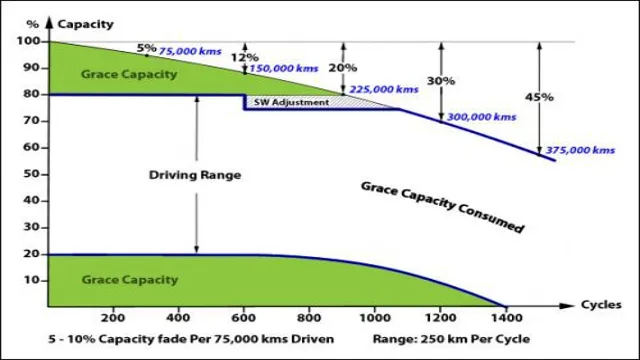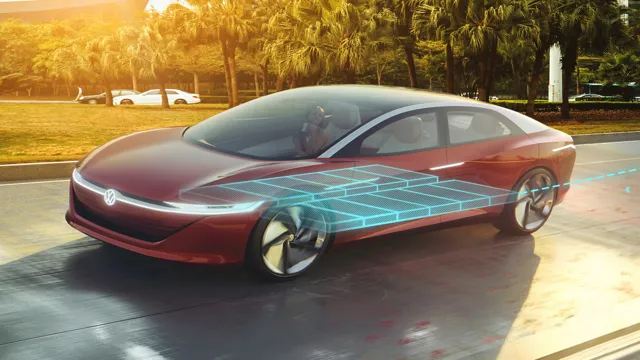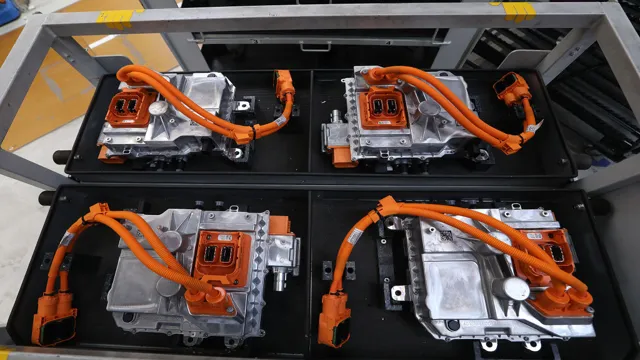Revolutionizing the Future of Electric Cars: The Power of Capacitor Batteries
Electric cars have been a hot topic in recent years as more and more people are looking for sustainable alternatives to traditional gasoline-powered vehicles. The main dilemma that comes with electric cars, though, is how to make them more efficient and practical. This is where the idea of using capacitor batteries comes in.
Capacitor batteries are a promising energy storage technology that combines the advantages of traditional batteries with those of capacitors. The result is a more efficient and longer-lasting battery that could be the key to the future of automotive energy.
What is a Capacitor Battery?
Electric car capacitor battery is a relatively new technology that is gaining popularity in the automotive industry. It refers to a type of battery that stores electrical energy using a capacitor instead of a traditional chemical battery. These batteries have several advantages over conventional batteries, including high power output, fast charging times and long lifespan.
Unlike chemical batteries that store electricity in a chemical reaction, capacitors store electricity in an electric field, which is why they can charge and discharge much faster than batteries. This makes them ideal for use in electric vehicles, where quick charging times and high power output are essential for optimum performance. With this new technology, electric cars can achieve better acceleration, longer range and lower environmental impact than ever before.
However, electric car capacitor batteries are still in the developmental stage, and more research and innovation are required to make them more efficient, affordable, and practical for everyday use.
Explaining the Basics of Capacitor Batteries
A capacitor battery is a type of energy storage device that is designed to store and deliver electrical energy in short bursts. Unlike traditional batteries which store energy in chemical form, capacitor batteries use an electrical field to store energy in an electric field. When compared to the traditional battery counterparts, capacitor batteries can charge and release energy at a much faster rate and are capable of delivering higher power output.
They are also more durable and have a much longer lifespan than traditional batteries. Capacitor batteries are commonly used in hybrid and electric vehicles, as well as in various electronic devices where high power output or quick charging times are required. Overall, capacitor batteries offer a more efficient and practical energy storage solution for a range of applications.
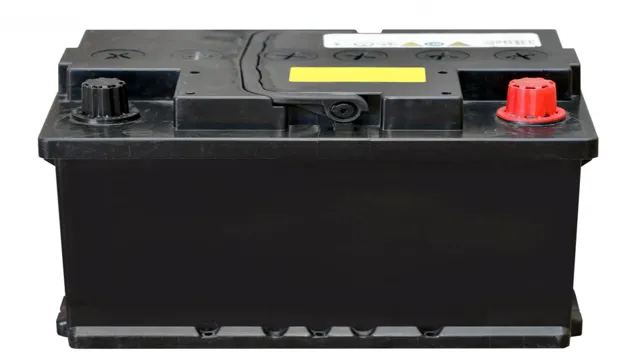
Comparing Capacitor Batteries to Traditional Batteries
Capacitor battery Have you ever heard of a capacitor battery? Unlike traditional batteries that use chemicals to store energy, capacitor batteries store energy in the electric field of capacitors. In essence, a capacitor is made up of two metal plates separated by a dielectric material. When voltage is applied, one plate becomes positively charged while the other becomes negatively charged.
This creates an electric field between the plates, which can be used to store energy. Capacitor batteries are known for being highly efficient and providing quick bursts of energy when needed. They are also rechargeable and have a longer lifespan than traditional batteries.
With the growing demand for cleaner and more sustainable energy solutions, capacitor batteries are becoming an increasingly popular alternative to traditional batteries.
The Advantages of Using a Capacitor Battery in an Electric Car
Electric car technology is rapidly evolving and one of the newest developments is the use of a capacitor battery. Unlike traditional lithium-ion batteries, capacitors can charge and discharge much faster, allowing for rapid acceleration and smoother energy flow. Capacitors also have a longer lifespan and are more durable, reducing the need for costly replacements.
Another advantage is their ability to store and release more energy, making them ideal for use in electric cars where energy density is crucial. Additionally, these batteries are safer as they are not flammable and do not require complex cooling systems. Using a capacitor battery in an electric car will result in a more efficient and eco-friendly driving experience, while providing greater power and longevity to the vehicle.
Faster Charging Time
If you’re an electric car owner, you know that charging time can be a real issue. Waiting around for your car to charge can be frustrating, especially if you’re in a rush. That’s why switching to a capacitor battery can be a game changer.
These batteries charge much faster than traditional lithium-ion batteries. In fact, they can be fully charged in just a few minutes. This is because capacitors have lower resistance than batteries, which allows them to accept and deliver charge much more quickly.
Not only does this make for a more convenient charging experience for the driver, but it also means that the car can spend more time on the road and less time at the charging station. Plus, since capacitor batteries don’t contain toxic materials like lead-acid batteries, they’re better for the environment. Making the switch to a capacitor battery is a win-win for electric car owners and the planet alike.
Better Energy Efficiency
Electric car manufacturers are constantly looking for ways to increase energy efficiency and improve battery life. One solution being implemented is the use of a capacitor battery alongside the traditional lithium-ion battery. The advantage of a capacitor battery is its ability to rapidly charge and discharge, providing an extra boost of power when needed.
This means that during acceleration and regenerative braking, the capacitor can provide extra energy, reducing strain on the lithium-ion battery and increasing its overall lifespan. In addition, the capacitor battery is smaller and lighter than a traditional battery, allowing for more space and weight savings in the car. By implementing a capacitor battery in electric cars, manufacturers can improve energy efficiency and reduce costs over time, leading to a more sustainable and economic future for electric vehicles.
Robust Performance
When it comes to powering electric cars, a capacitor battery can offer several advantages over traditional lithium-ion batteries. One of these advantages is robust performance. Capacitor batteries are capable of providing high power bursts when needed, making them particularly valuable in situations like acceleration and regenerative braking.
They are also less prone to degradation over time, which means they can maintain performance over thousands of cycles. Additionally, capacitor batteries are more resistant to extreme temperatures and can operate in a wider range than lithium-ion batteries, making them ideal for use in electric vehicles that travel in different climates. Ultimately, the use of a capacitor battery in an electric car can help improve efficiency, extend range, and offer a more reliable and consistent driving experience on the road.
Disadvantages of Capacitor Batteries
Electric car capacitor batteries are a promising alternative to traditional lithium-ion batteries in terms of their quick charging capabilities and long lifespan. However, like any technology, they also come with their own set of disadvantages. The biggest drawback of capacitor batteries is their limited storage capacity which falls short in meeting the energy needs of vehicles with higher power requirements.
Additionally, capacitor batteries may not perform well under extreme temperatures and can experience leakage issues. These drawbacks make it challenging to use capacitor batteries as a primary power source for electric vehicles and may require the use of a hybrid system with a secondary battery to ensure sufficient energy supply. Despite these limitations, researchers and engineers are continuously working to improve the technology and innovative approaches to store electric energy.
Higher Cost
One of the primary disadvantages of capacitor batteries is their higher cost as compared to traditional lithium-ion batteries. The manufacturing process for capacitor batteries requires specialized materials and technologies that drive up the cost of production. Additionally, capacitor batteries have a lower energy density as compared to traditional batteries, which means that more capacitors are needed to store the same amount of energy.
This further adds to the final cost of the battery. Despite the higher cost, capacitor batteries have a faster charging time and longer lifespan, making them a viable alternative for certain applications. However, for applications that require a high energy density and low cost, traditional lithium-ion batteries may still be the preferred option.
Shorter Driving Distance
Capacitor Batteries While capacitor batteries seem like an exciting alternative to traditional lithium-ion batteries, they do come with a few disadvantages. One significant drawback is that they have a shorter driving distance than their lithium-ion counterparts. Capacitor batteries are not yet as efficient as other types of batteries when it comes to storing energy.
This means that they may not be able to power an electric vehicle (EV) for as long as lithium-ion batteries can. As a result, EVs with capacitor batteries may have a shorter driving range, which can be inconvenient for those who are used to traveling long distances. While capacitor batteries have the potential to revolutionize the EV market, they still have some technological barriers to overcome.
The Future of Capacitor Batteries in the Automotive Industry
Electric car capacitor batteries have been gaining attention in the automotive industry as a potential replacement for traditional lithium-ion batteries. These batteries have the potential to provide several benefits such as increased energy density, faster charging time, and a longer lifespan. Capacitor batteries work on the principle of electrostatic energy storage instead of chemical reactions, which is the case with lithium-ion batteries.
As a result, they can discharge and charge electricity much faster, making them ideal for electric vehicles that require quick charging times. Though there are still some challenges to be overcome, such as low energy density and high cost, developments in this technology make it a promising alternative for the future of electric cars.
Conclusion
In conclusion, the electric car capacitor battery is like the superhero of batteries. It can charge faster than a speeding bullet, store more energy than a locomotive, and leap over the need for frequent recharging in a single bound. By harnessing the power of capacitors, electric car manufacturers are paving the way for a more efficient and environmentally-friendly mode of transportation.
So, if you’re looking for a battery that’s faster than a Tesla Roadster and more powerful than a Nissan Leaf, look no further than the electric car capacitor battery.”
FAQs
What is an electric car?
An electric car is a vehicle that runs on electric power stored in batteries or capacitors, instead of using gasoline or diesel fuel.
What is a capacitor in an electric car?
A capacitor in an electric car is an electronic component that stores and releases electrical energy rapidly, and is used to provide bursts of energy for acceleration and regenerative braking.
How does the battery in an electric car work?
The battery in an electric car works by storing electrical energy in chemical form, which can then be converted into electrical power to drive the motor. The battery is charged by plugging the car into an electrical outlet, or a public charging station.
What are the advantages of using a capacitor in an electric car?
Using a capacitor in an electric car has several advantages, including faster charging and discharging times than batteries, longer lifespan, and improved energy efficiency.
What is the range of an electric car battery?
The range of an electric car battery depends on the size of the battery and the efficiency of the car, but typically ranges from 100-300 miles on a single charge. However, this can vary greatly depending on driving habits and environmental conditions.

